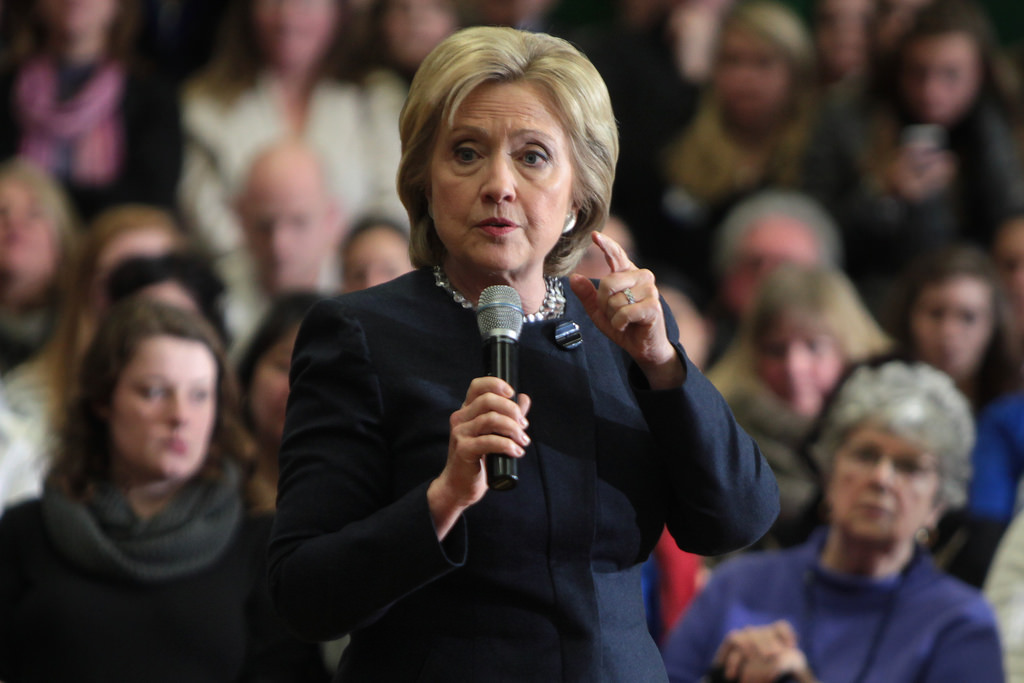While Democratic nominee Hillary Clinton maintains a 41 percent lead with millennial voters over GOP nominee Donald Trump in a recent USA TODAY/Rock the Vote Millennial Poll, millennials on the left are divided on their views about her outreach strategy.
Sophomore Tatiana Bodnar said during this presidential campaign, Clinton and Green Party candidate Jill Stein have been doing a lot of pandering.
“They both kind of make me cringe at how they’ve been trying to reach the millennials,” the finance and government and politics major said. “… They should stick more with the issues than like, try and do appeals.”
Bodnar referenced Clinton using Miley Cyrus and Katy Perry to promote her campaign as examples of trying to cater to millennials. Cyrus visited George Mason University in late October to show her support for Clinton.
College affordability and job growth are particularly important topics for candidates to address when trying to reach millennials, she said, noting that right now, “[Millennials] don’t really care about social security.”
Dylan Sinn, a journalism graduate student, calls much of the outreach “contrived.”
“I try to form my own conclusions separate from what the candidates try to tell me,” Sinn said. “Millennials don’t want to be pandered to. We’re growing up, we’re intelligent, we like to have candidates that talk to us about issues that matter to us.” He mentioned Clinton did “the dab” in January on The Ellen DeGeneres Show in an effort to appeal to younger voters.
Part of the reason candidates in this election cycle have to do so much pandering is because millennials aren’t drawn to them, according to government and politics professor Michael Hanmer.
“I don’t think that any of the candidates … have a special appeal towards younger people in the same way that Obama did, in the same way that Bernie Sanders did, during the Democratic primary,” Hanmer said, though he indicated that “this is really not a campaign about issues.”
Despite some students’ disapproval of Clinton’s campaign tactics, senior government and politics and theater major Christopher Walkup said he thinks Clinton “has deployed an amazing team of surrogates to help with millennial outreach,” because “Michelle Obama, Bernie Sanders, Elizabeth Warren and President Obama are all incredibly popular when it comes to millennials.”
Though Walkup, an events coordinator for Terps For Hillary, initially supported Sanders, he now supports Clinton as the democratic nominee, though he said Sanders’ endorsement had a large effect on his decision. He added that he believes Clinton has adopted some of what he considers Sanders’ best ideas, including free tuition at public colleges for lower-income students and proposed changes to the healthcare system, such as separating health insurance from employment.
“It’s the duty of … young progressives who have a lot on the line when it comes to this election to join that coalition, and not just hold Hillary Clinton’s feet to the fire if she doesn’t do exactly what we want, but also support her if she does do what we want,” he said. “That’s the crucial thing that’s missed too often.”
Senior American studies major Ami Kutzen, who is also a co-president of Terps For Hillary, said she considers millennial outreach crucial for candidates to ensure they’re accurately representing their potential constituents.
“It’s our future,” Kutzen said. “[Baby boomers are] not going to be around in 50 years … it’s our future and we’re voting for it.”



